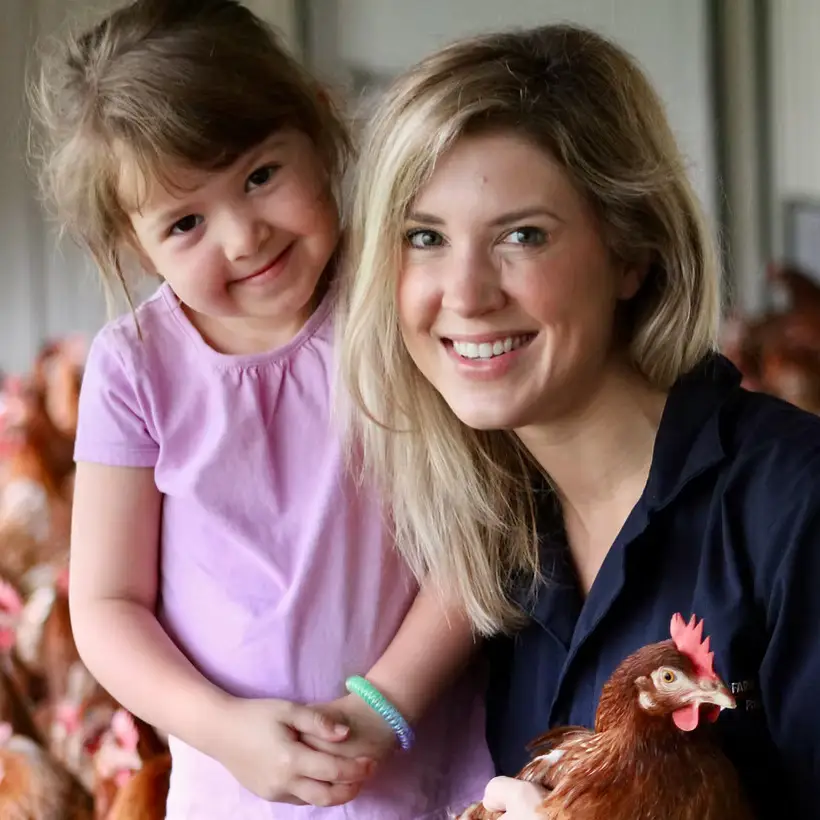Table of Contents
Egg Supply and Prices
Affordable, available food matters to everyone. Egg farmers share your concerns and frustration when a bird flu outbreak results in higher retail prices or impacts supply. It’s important to know that egg farmers are price takers and can’t usually set the wholesale price of eggs. Eggs are sold on markets like other agricultural commodities based on supply and demand. If the egg supply is tight because of bird flu, that can negatively affect egg prices at the store, on restaurant menus and at bakeries where eggs are so important.
What We’re Doing
America’s egg farmers are working hard to make sure the eggs you rely on are available. Keeping our birds safe and healthy is every egg farmer’s top priority, and we’re working around the clock to protect our birds, build back our farms and replenish America’s egg supply. And while we do that, we’re also working together to move eggs across the country to where they’re needed.
Egg Quality and Value
Eggs are the same safe, nutritious and versatile food you’ve always relied on. And cost per serving, eggs are still a good value among high-quality proteins available.
Facts About Bird Flu
First and foremost, the USDA and the FDA say you can be confident in the safety of the eggs you buy at the grocery store. Since 2022, bird flu has caused the loss of more than 140 million egg-laying hens – 40 million in 2025 alone. We’re committed to beating bird flu, and we’re throwing everything we have at it. We’re working closely with partners across agriculture, in the scientific community and with the federal and state governments to solve this problem, but it’s going to take time. We’re counting on your patience and understanding while we get our farms back up and running, restore the egg supply and find a way to beat this terrible disease.
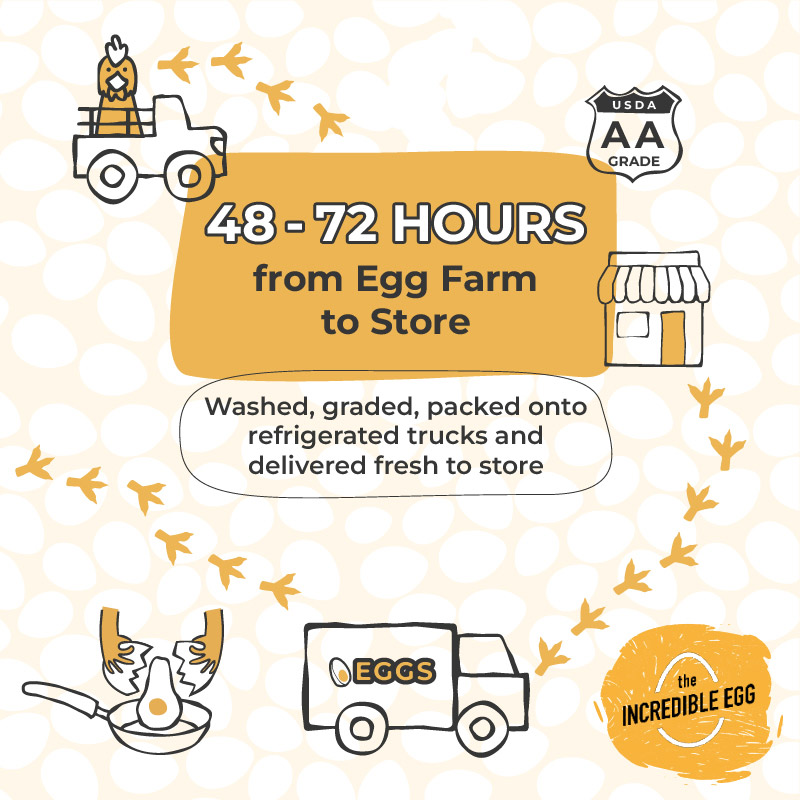
Good News: Egg Farmers are Working Fast
Across the nation, egg farmers and retailers work quickly to source eggs where they’re available and replenish where supplies are low. In fact, cases are often restocked within 24 hours. So, if you’re experiencing a shortage of eggs in your area, check again soon for more fresh, wholesome eggs.

Swap in Eggs for Other Proteins
Make eggs your main protein for a budget-friendly meal. Eggs offer 6 grams of high-quality and complete protein with all 9 essential amino acids, making them a great swap.

Freeze Extra Eggs
Not sure you’ll finish your whole carton of eggs? You can freeze egg yolks or egg whites to use later. Pro tip: You can also freeze many egg dishes, from scrambled eggs to casseroles, for easy reheating.

Makeover Your Leftovers
Level up your takeout leftovers to create a new, delicious meal with eggs. Turn that uneaten side of plain white rice into tasty fried rice with eggs and frozen veggies. Or stretch leftover stir-fry into a dinner frittata.

Try a Protein Team-Up
Stretch your carton by pairing eggs with protein staples like beans, lentils, tofu, cottage cheese or canned fish. From black bean and egg burritos to cottage cheese scrambled eggs, plenty of protein-loaded dishes make every egg count!

Bring Fiber to the Table
Add more vegetables, grains or shredded potatoes to your favorite egg dishes. The added fiber from these ingredients means you only need a few eggs to whip up delicious meals that fill you up – from baked oats to a grain bowl to a baked pasta.

Finish Your Veggies with Eggs
Eggs are an unsung hero when it comes to using up your veggies. The versatility of eggs is like a superpower that can rescue veggies from becoming food waste. Try a stir fry omelet to use up leftover greens or a quick fried rice packed with produce.
Think by the Dozen: Weeknights and Meal Prep are Easier with Eggs
Weeknights can be hard, but cooking doesn’t have to be. Maximize the value of your eggs and your time by making some grab-and-go breakfast options. Prepping breakfast burritos or egg bites ahead of the week can keep you fueled even when life is busy.
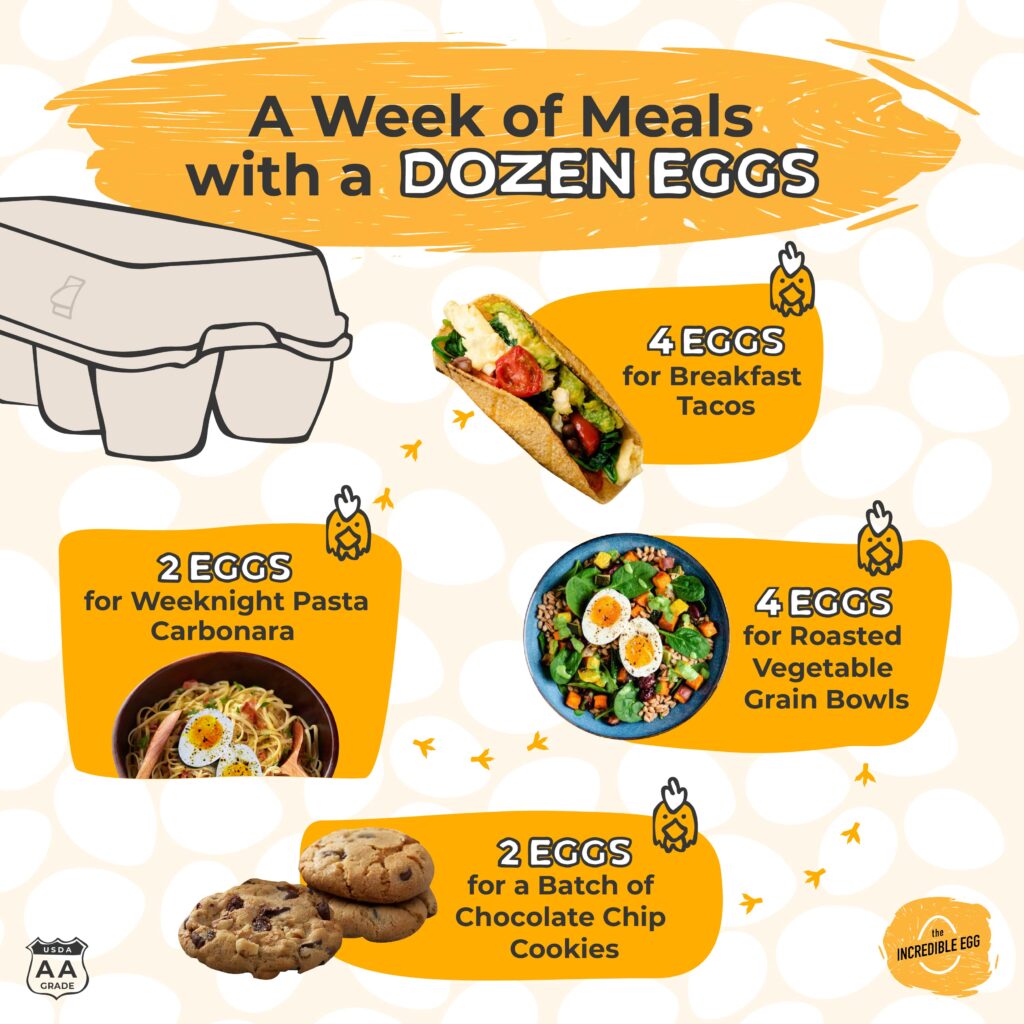
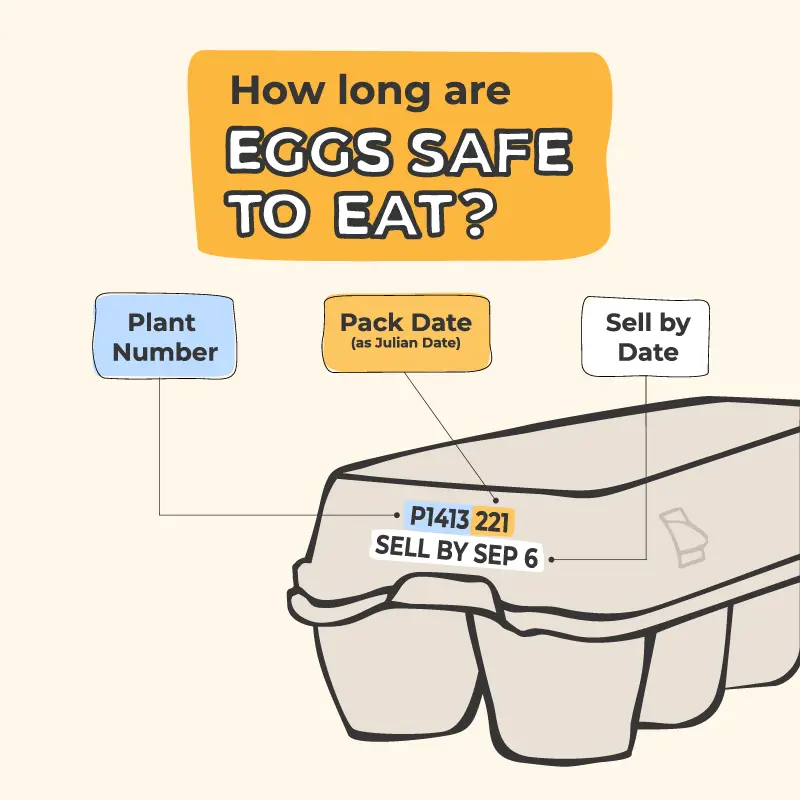
Understanding Carton Dates: How Long Do Eggs Last?
Curious about how long your carton of eggs lasts? Here’s what to look for when checking the carton.
Pack Date: USDA grade eggs include the Pack Date stamped on their carton, formatted as a Julian date. Refrigerated eggs are safe to consume 4 to 5 weeks past this date.
Julian Date: To decode the Julian date on egg cartons, think of January 1 as 001 and count up for each calendar date from there. So, January 2 is 002, and so on, until December 31 is 365.
Sell-By Date: You may also see a sell-by date listed in a more conventional format. This date is not a requirement in all states.
Nutrition Matters: Eggs are a Nutritional Powerhouse
Now more than ever you want to get the most nutritional value from your grocery budget. Eggs are a complete protein and are nutrient-rich, versatile and convenient, making them a valuable ingredient in tasty and nourishing meals.
Beyond just protein, eggs contain an excellent or good source of eight essential nutrients that support health at every age. Eggs also deliver key nutrients that most Americans don’t get enough of, including vitamin D and choline.

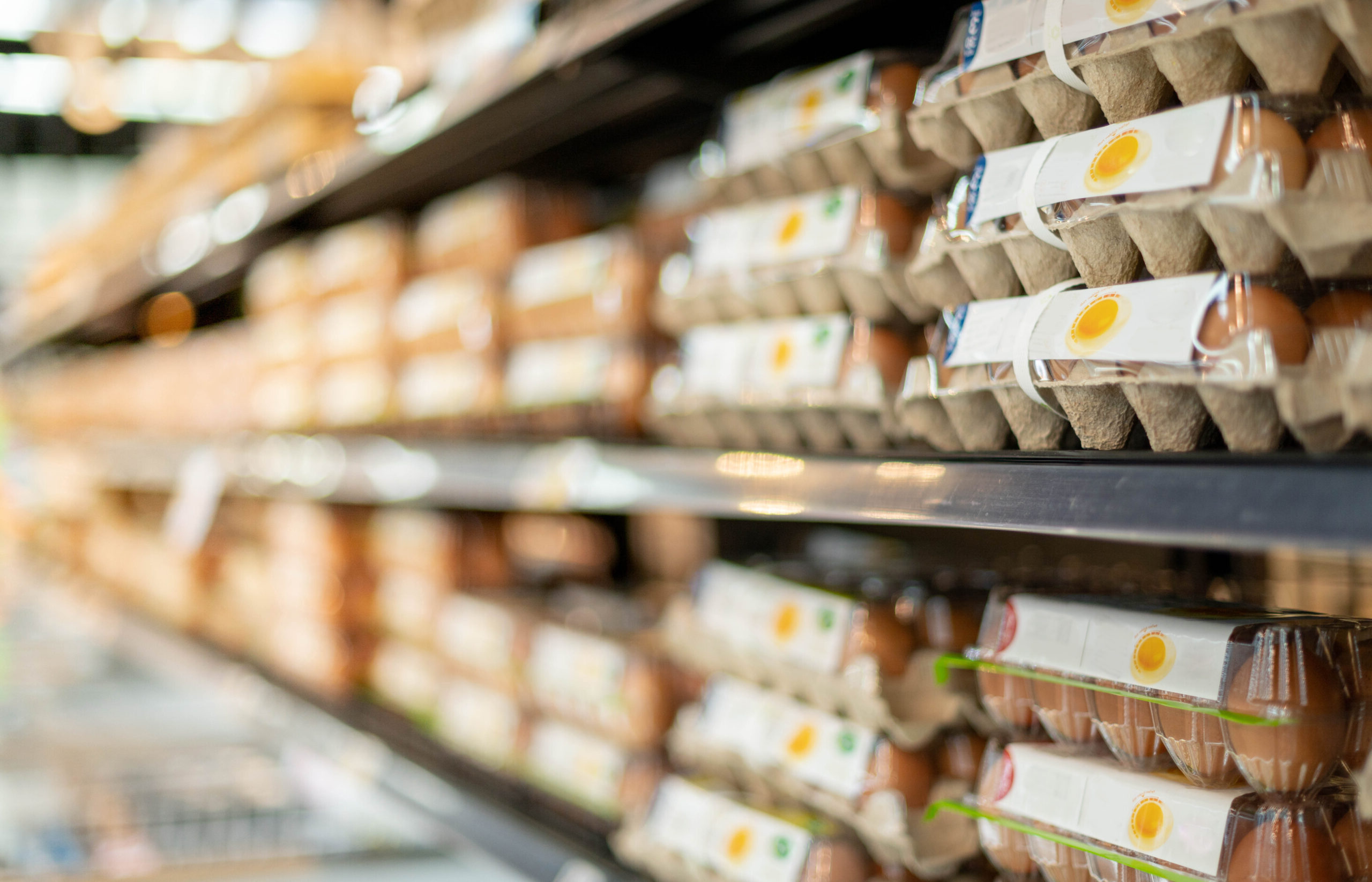
Value by the Dozen
A dozen large eggs weigh about 1.5 pounds, and each large egg has six grams of protein, all for only 70 calories! Eggs remain a good value at the grocery store as one of the most affordable high-quality proteins per serving.

Complete Protein Matters
Everyone wants to get enough protein, but did you know not all proteins are created equal? As a complete protein, eggs contain all nine essential amino acids in a digestible and bioavailable form.

All-Around Nutritional Powerhouse
Eggs can amp up the nutrition of your meals. Eggs bring a unique nutrient package that contributes to health and well-being at every age and stage.
Eggs are One of the Most Affordable High Quality Proteins
| Protein | Average Serving Size | Cost Per Serving |
|---|---|---|
Eggs (1 Large) | 1 | $0.23 |
Chicken (Boneless Breast) | 4 oz. | $1.04 |
Beef (Ground) | 4 oz. | $1.67 |
Pork (Chops) | 4 oz. | $1.17 |
12 Recipes for Easy, Budget-Friendly Meals with Eggs
Discover a dozen ways to experience new twists on breakfast, lunch and dinner that will delight your family. From Stir Fried Veggie Lettuce Cups to Air Fryer Egg Bites, eggs provide a nutritious and delicious experience to help you take your meals to the next level – and help stretch your weekly grocery budgets further!
Answering your questions about how bird flu is impacting eggs.
The American Egg Board is here to help answer your questions on bird flu, egg prices and egg supply, as we work closely with the USDA, CDC and FDA to get you information.
Download a PDF file of frequently asked questions—and their answers—here.
- What is bird flu?
-
Highly Pathogenic Avian influenza (HPAI) — also called “bird flu” — is a highly infectious disease of birds caused by type A strains of the influenza virus.
HPAI is carried by wild birds and is almost always fatal to poultry like chickens and turkeys. Bird flu is devastating to the egg farmers who care for these birds and depend on them for their livelihoods. America’s egg farmers work around the clock to protect their hens and farms from bird flu enforcing strict biosecurity measures to ensure the safety of the nation’s egg supply.
- How can bird flu affect egg prices?
-
Eggs are sold on markets as commodities, like corn and wheat, and wholesale prices for eggs are driven largely by supply and demand.
Several things can temporarily affecting the price of eggs. Since the current bird flu outbreak began in 2022, more than 140 million egg-laying hens have been lost to the disease. While egg farmers have worked hard to repopulate their farms, temporary supply disruptions have occurred along with spikes in wholesale prices. At the same time, demand for the nutritious protein package that eggs provide is as strong as ever.
- My local grocery store didn’t have enough eggs or the egg brand I like to buy. What is impacting this?
-
We appreciate your patience as egg farmers work hard to get eggs on shelves. Depending on where you live, where you shop, what day you shop and even the time of day you’re shopping, you may run into a temporary shortage at the store. Don’t worry, egg farmers have a lot of experience working together to move eggs across the country to where they’re needed most—and that’s exactly what they’re doing now. We understand how frustrating it is when eggs are not available on a shopping trip, and we expect any shortages to be localized and short-lived as egg farmers work with their retail customers to replenish those stocks. Since eggs are perishable, deliveries to grocery stores are frequent, and cases are being restocked with fresh eggs often within 24 hours.
- What makes eggs such a good value?
-
A dozen large eggs weigh about 1.5 pounds, and each large egg has six grams of protein, all for only 70 calories! Eggs remain a good value at the grocery store as one of the most affordable high-quality proteins per serving.
- Are eggs safe to eat with bird flu?
-
The USDA and the FDA say consumers can be confident in the safety of eggs, and the CDC reinforces that the current risk to the public remains low. With many safeguards in place, which include testing of flocks and federal inspection programs, the likelihood that eggs from infected poultry are in the retail market is low. The CDC also confirms that avian influenza cannot be transmitted through safely handled and thoroughly cooked eggs or poultry. To ensure food safety, always cook eggs to 160⁰ F.
- What are egg farmers doing to protect against bird flu?
-
Egg farmers are fighting bird flu with all their resources and doing all they can to prevent the disease on their farms, but bird flu remains a clear and present threat to laying flocks. America’s egg farmers are working around the clock to protect their hens and farms from bird flu and to ensure the safety of the nation’s egg supply.
Egg farmers have invested hundreds of millions of dollars on expansive on-farm biosecurity facilities, practices and equipment to protect their birds and keep this disease off their farms. Unfortunately, even the best biosecurity isn’t foolproof, and farmers continue to learn and improve these methods every day.
Keeping their birds safe and healthy is a top priority for every egg farmer—these birds are their livelihoods. Learn more about U.S. egg farms and hear more from a farmer about the stringent and comprehensive biosecurity measures they have in place:
- How quickly does an egg farm recover from bird flu?
-
The system of egg production is both complex and time sensitive, and it can take a year or more for an egg farm that has been affected by bird flu to return to full production. When an egg farm is impacted with HPAI, it must first go through multiple steps with government approvals before it can bring in new flocks of birds. This alone can take six months or longer.
Once the farm is ready to bring in new birds, egg farmers start with day-old chicks and raise them to young hens, which takes 18 to 20 weeks before the hens are ready to produce eggs. This process is repeated for each barn that needs to be refilled on a staggered schedule in order to ensure a steady supply of large, extra-large and jumbo eggs are being produced. Additional delays may result depending on the availability of new chicks, which are in high demand due to the number of egg farms currently recovering.
Click Here to Learn More about Restoring America’s Egg Farms
- What further actions are being taken to protect egg farms from bird flu?
-
Egg farmers are working closely with state and federal animal health officials in response to HPAI cases. The American Egg Board and egg farmers believe innovative, effective approaches must be identified to respond to the devastation of HPAI, including collaborative, actionable solutions to limit HPAI’s impact on the nation’s egg farms.
- What is the American Egg Board?
-
The American Egg Board is what’s known as a national commodity check-off organization that works on behalf of America’s egg farmers. The American Egg Board is 100 percent farmer-funded, and those funds directly support the research, education and promotion necessary to market eggs. Learn more about the American Egg Board here.



